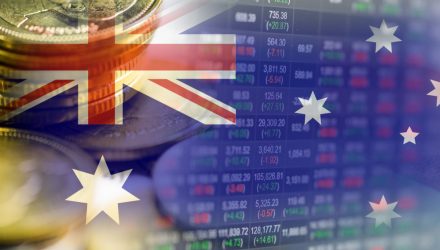Australia country-specific exchange traded funds were among the leading areas of the markets on Monday as investors grew optimistic about easing shutdown restrictions and on bets that the Reserve Bank of Australia could take more aggressive action.
The iShares MSCI Australia ETF (NYSEArca: EWA) was among the best performing non-leveraged ETFs of Monday, rising 4.5%.
Australian markets rallied Monday on further easing of pandemic-induced shutdown measures, along with gains in the mining sector due to improving commodity prices, Reuters reports.
Several Australian states continued to rollback social distancing restrictions, helping restaurants to host more people and allowing public attractions to reopen.
Australian equities also strengthened alongside Asian markets after President Donald Trump refrained from taking an aggressive stance against China in response to the new security law imposed on Hong Kong.
“Having negotiated some potentially deep political potholes, and with a slew of data suggesting that, for now, the Covid-19 recovery is on track, momentum is clearly lying with the peak-virus trade as the week starts,” Oanda analyst Jeffrey Halley told BusinessInsider.
Looking ahead, traders will be watching for the Reserve Bank of Australia’s policy meeting on Tuesday, but markets do not expect any major surprises. As recently as last week, RBA governor Philip Lowe said it was highly unlikely the bank would follow the path of other developed economies in cutting rates below zero.
However, some argue that the central bank should consider plans to take rates to zero in a bid to bolster the economy. Westpac chief economist Bill Evans argued that negative rates would enable the nation’s major banks to cut lending rates, which would allow enabling businesses and mortgage holders to borrow at extremely low cost, the Sydney Morning Herald reports. The more aggressive monetary policy would also take the pressure off the Australian dollar, which has reached its highest level since March.
“A serious case can be made for the RBA to consider further cuts and entering negative territory for the cash rate if it becomes apparent that the economy is deteriorating even more than is currently expected,” Evans told the Sydney Morning Herald. “A small open economy with significant foreign liabilities would certainly see a substantial improvement in the competitiveness of the currency with further rate cuts when other major markets are anchored at their effective lower bounds.”
For more information on the Australian markets, visit our Australia category.
